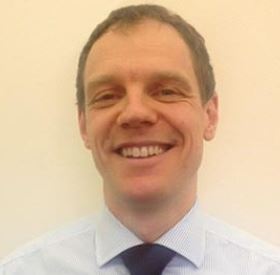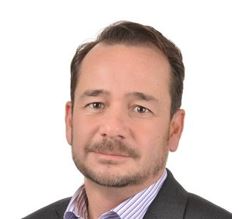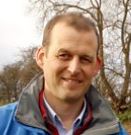

Conference 2019 - Lessons from the Land
The afternoon session offers 2 Parallel Workships: Emerging Research & Pollicy Themes and On Farm Developments
Information about the speakers and their topics:
Emerging Research & Policy Themes
Dr Nick Starkey, Director of Policy, Royal Academy of Engineering 
Engineering, Policy Food & Data - The need for engineering expertise to inform policy making has never been more acute. Almost all of the issues facing policy makers today from climate change to housing, cyber security to health care, are complex systems problems often with a technical edge. Engineers are natural systems thinkers, with an ability to define a problem, marshal evidence, trial solutions and make connections, and they have a huge amount to contribute to the design and delivery of policy for the public good.
It is for this reason that the Royal Academy of Engineering has collaborated with the other 38 major professional engineering institutes to form the National Engineering Policy Centre. The Centre is a vehicle through which we can reach across organisational and professional silos to take a systems approach to policy issues with an engineering element.
IAgrE is an important and influential part of that alliance. Through the Policy Centre we are together informing the consultation on a National Food Strategy. We have a digital topic group which keeps abreast of the developments in data and digital – itself a branch of engineering - and their implications for other parts of engineering. And we are currently undertaking a major project on the Safety and Ethics of Autonomous Systems, learning specifically from the different early experiences of autonomy in agriculture, air and marine contexts and in other applications such as social media and healthcare. The discussion will explore these topics and the role of the engineering in public policy.
Professor Ronald Corstanje MIAgrE, Professor of Environmental Data Science at Cranfield University 
His research programme embraces the development and application of modelling, informatics and statistical methods to current problems in soil science, agriculture and the environmental sciences, ranging from fundamental methodological developments, to their application in these fields. In his PhD, he obtained a major in Soil and Water science, and a minor in Statistics from the University of Florida. In subsequent work on the Everglades, he helped design a large-scale monitoring effort of the Everglades and subsequently developed statistical techniques with which to determine change in environmental properties in sampling networks), an area of work in which he still active in the Everglades and in the Mississippi delta. His interests expanded to scaling of process models, and integrating environmental process models within spatial systems, and whilst at the Bioinformatics and Biomathematics Division at Rothamsted Research, he developed a set of scaling rules for soil process models. He subsequently joined the National Soil Resources Institute at Cranfield University, which holds the national soil survey for England and Wales, as well as many international soils datasets from across the globe. He integrated these data in a general method for scaling soil sensor data, understanding the scaling dependencies in this, as part of a New Investigator grant.
His current research programme at Cranfield University integrates spatial temporal models with environmental and ecological data, from climate-driven modelling, hydrological modelling, to ecological modelling. A recurrent theme throughout is scale, scale effects and scaling of processes and process model understanding, developing and integrating measures of uncertainty and its communication. His work is policy relevant, as to which statistical techniques are developed and considered for soil quality health monitoring, the resilience of natural systems and the importance of natural capital in agriculture, the development of infrastructure and in urban ecology. He is currently programme Champion for the NERC programme Constructing an Digital Environment; championing a £10.5 M program on developing digital solutions for the natural environment.
Ron also leads the Centre for Environmental and Agricultural Informatics (CEAI). CEAI specialises in the development of transformational informatics technology, integrating data gathering and monitoring technologies (sensor tech), data manipulation and interpretation (informatics and data sciences). CAEI includes research on air quality and climate change, soil quality, crop growth and monitoring, natural capital, ecosystem goods and services and on urban systems. In this way, CAEI articulates the benefits and findings from the data collected, providing a whole system approach to agricultural and environmental informatics.
Dr Robert Simmons MIAgrE 
Dr Rob Simmons is a Reader in sustainable soil management. Rob is an applied soil scientist with >25 years’ experience of sustainable soil management founded on a robust understanding of the associated processes. Rob has an extensive research portfolio and has been PI or CoI on >14 BBSRC, NERC, Innovate UK, Environment Agency, WRAP and AHDB funded projects with funding totalling over £3 million in the last 7 years. This portfolio has focused on mitigating diffuse pollution through applied soil conservation options (grassed water way design, filtersocks, companion crops, mulches), optimizing whole farm ‘big data’ use, controlling splash detachment and structural sealing through polymer-based solutions and increasing understanding of soil management challenges in high value horticultural crops.
Rob's recent research has investigated the effect of rainfall-induced structural sealing on the hydrological response of the soil surface. He also has 10 years practical experience of soil management in Southeast and South Asia with 7 years at the International Water Management Institute (IWMI). Rob’s research overseas included modelling the off-site impacts of Cd-contaminated sediments on paddy systems and impacts on human health, phytoremediation of Cd, and assessment and mitigation of diffuse pollution in South and Southeast Asia.
On Farm Developments
career - your passport to professionalism...
If you have a query about events, click here...



